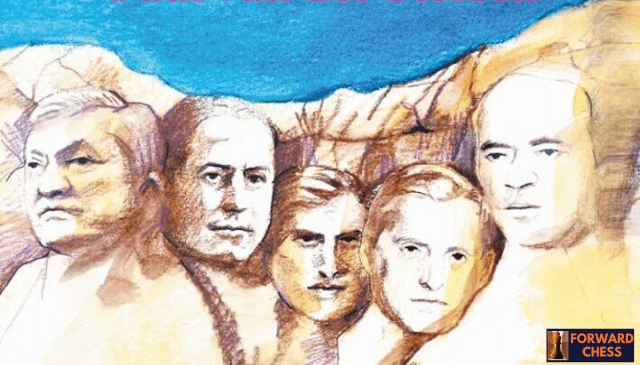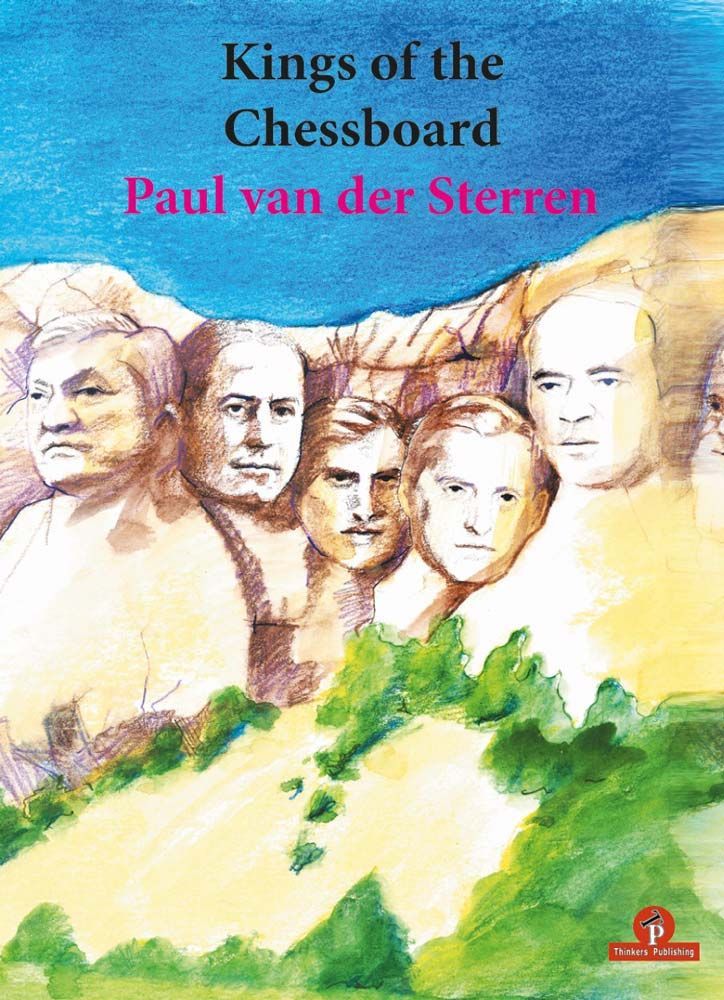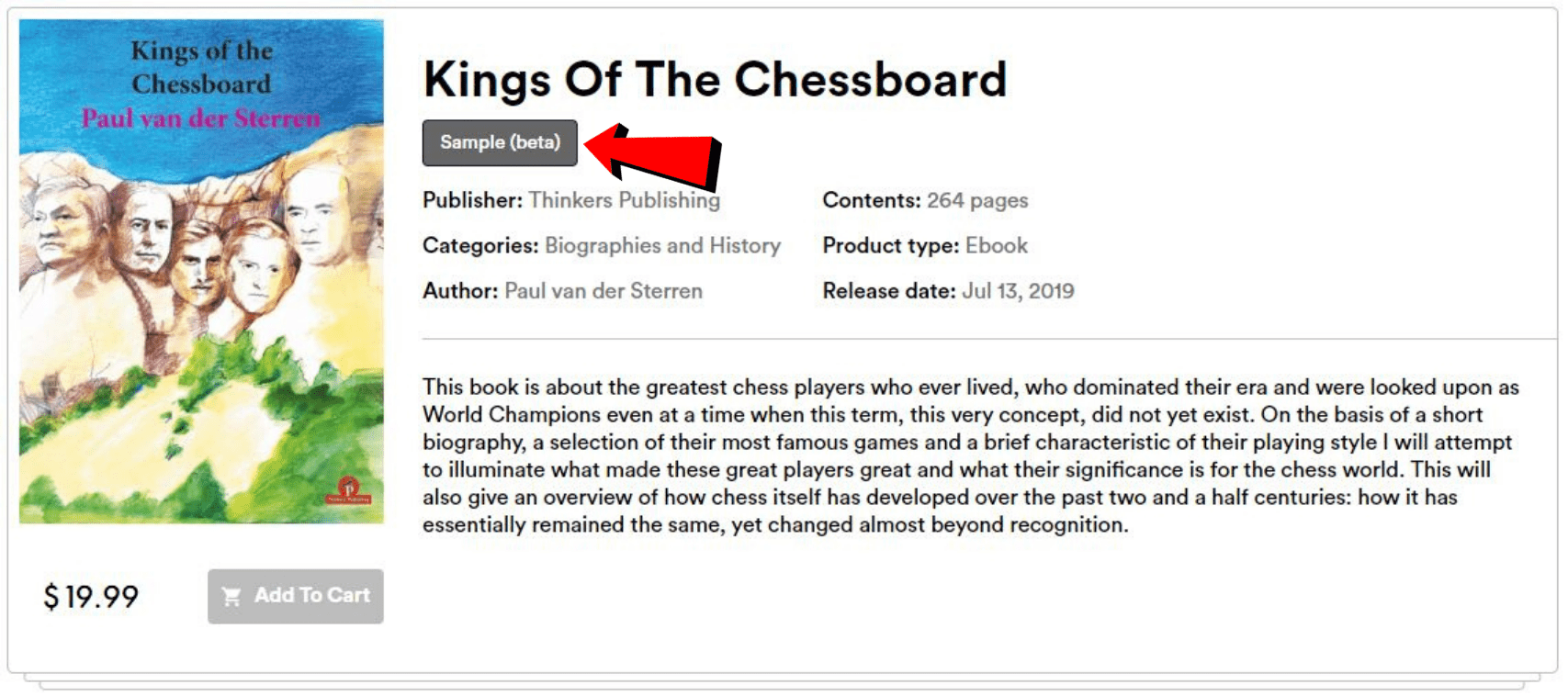Our BOOK OF THE WEEK is Kings of the Chessboard by Paul van der Sterren.
This book is about the greatest chess players who ever lived, who dominated their era and were looked upon as World Champions even at a time when this term, this very concept, did not yet exist. On the basis of a short biography, a selection of their most famous games and a brief characteristic of their playing style I will attempt to illuminate what made these great players great and what their significance is for the chess world. This will also give an overview of how chess itself has developed over the past two and a half centuries: how it has essentially remained the same, yet changed almost beyond recognition.
This book gives short biographies on some of the world’s best players, with some lightly annotated games to showcase and teach the strengths of these champions. Here is an excerpt:
Chapter 4: Paul Morphy
And there suddenly there was … Paul Morphy. How can one describe such a unique phenomenon in the history of chess? Out of the blue Morphy appeared on the scene, shook the chess world to its foundations and then, as suddenly as he had came, he was gone again, leaving an utterly confused legion of admirers. Had this been an earthquake, a dream?
Well, it wasn’t a dream, but a coherent explanation – or even a thorough description – of Morphy’s comet-like appearance and disappearance has rarely been offered. Perhaps it is impossible to do so without digging far deeper than is normal for a chess biography.
With Paul Morphy (1837-1884) America makes its grand entrance into the expanding chess world. Born in New Orleans, Louisiana, he grew up in a wealthy and distinguished family. Morphy supposedly learned chess at the age of three, just by watching his father and uncle play, a story which could be true, though it sounds incredible. (Half a century later the same would be said about Capablanca.) Little Paul was certainly an unusually gifted child. His parents stimulated him, he was ‘allowed’ to play against ever strong opponents and by the time he was twelve years old he was by far the best player in New Orleans.
Whether because of a lack of new challenges or because he simply did as he was told by his parents, Morphy then devoted himself completely to his studies (wherein he again excelled) for the next seven years. However, when in 1857 Morphy had completed his education and could finally call himself a free man, he immediately resumed his chess career. Morphy traveled to New York to play in the First American Chess Congress with overwhelming success. He easily overcame the strongest American Players of the time and Louis Paulsen (1833-1891), a German then living in America, who was already considered one of the world’s best players and would remain so for several decades. After his defeat of Paulsen in the final – the format of the tournament was a knock-out in London 1851 – Morphy was instantly (and explicitly) recognized as the new American Champion. This was the start of a career that was, in essence, a triumphal procession, yet one which was to last for only two years, an incredibly short period. Traveling to Europe in the summer of 1858, Morphy sought the strongest possible opponents there, demolishing every one who was willing to play him, including Anderssen. Having completed his mission, Morphy returned to America the next year. Although his countrymen showered him with honors, he then publicly declared his retirement from chess, a ‘promise’ Morphy went on to keep – with a few unimportant exceptions – for the rest of his life. He had shown himself to be the best and that was enough for him.
It is typical of the many legends that surround him that Morphy’s most famous games was not a proper game at all – at least not in the sense of being a serious game against a worthy opponent. This game was played during an opera performance in Paris, in the private box of Charles II, Duke of Brunswick, who had invited Morphy to join him in the box, but was apparently more interested in chess than in opera. Morphy was forced to play against the Duke in consultation with another of his guests, a Count Isouard, with his back turned to the stage. It must have given him great satisfaction that the game turned out to be one of the most deviating victories of his career.
Why choose the Forward Chess edition? It is cheaper than the physical version and the variations are more efficient to play through on a digital board. You can also use the latest stockfish engine, add your own notes, bookmarks, and much more.
Learn more: Kings of the Chessboard
DID YOU KNOW that Forward Chess offers free samples for all the books? Just head to the book page of your choice and click the Sample button under the title and you’ll be able to preview contents of the book.
- Dark Mode is now live on Web Reader - April 30, 2024
- Book Review: Tal Botvinnik 1960 - April 24, 2024
- Grandmaster Mistakes – Chess Psychology - October 27, 2021


